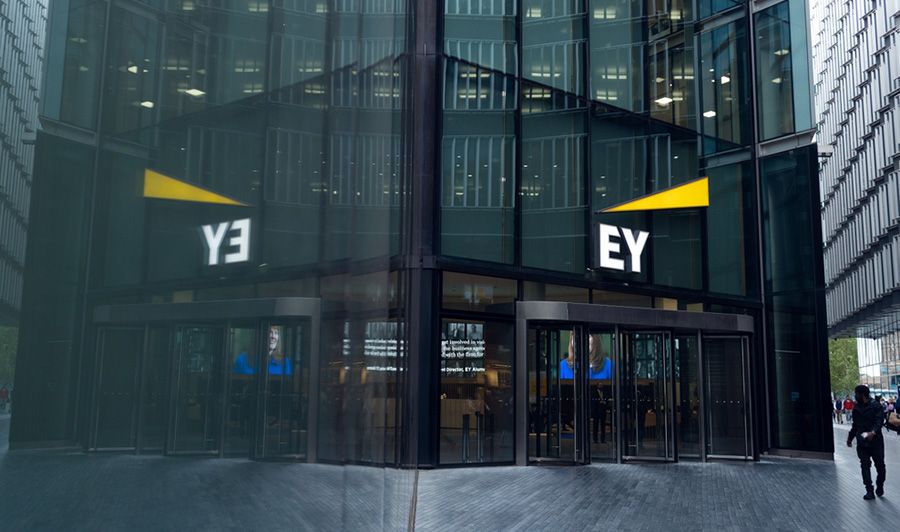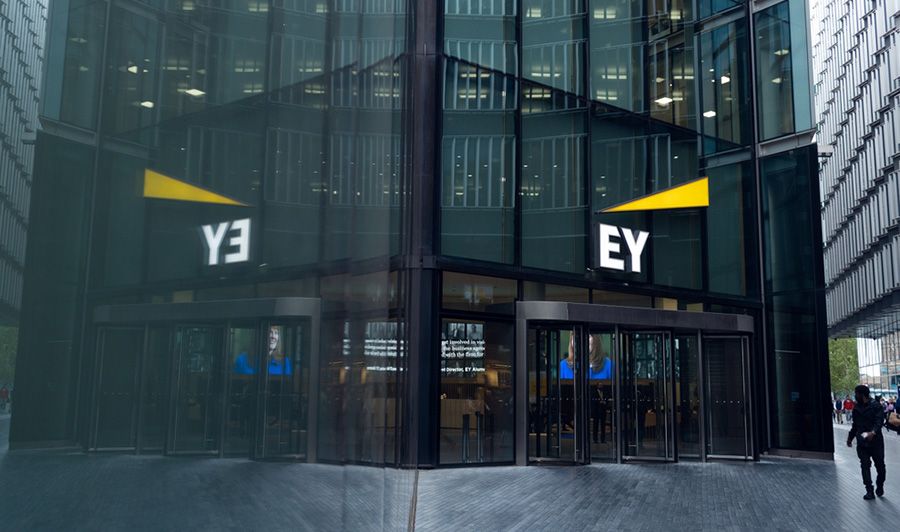EY has taken a significant next step in its plan to separate its audit and advisory businesses, with the firm’s executive team and top management deciding to bring forward the split to a partner vote.
In May this year, EY announced its strategic review to spin off its consulting business into a new entity. If approved, the move would mark the biggest shake-up in the accounting and consulting sector since the 2002 collapse of Arthur Andersen, which saw the ‘Big Five’ reduced to the ‘Big Four’.
EY, which has 130,000 employees worldwide, has now confirmed that its executive team and the leaders of its 15 largest member firms (which account for 80% of its $45 billion annual revenues) have unanimously approved the strategy to split into two distinct organisations.

“EY is proud of its legacy as a leading global professional services organisation. The world is changing, and we have to adapt to continue to thrive and achieve our full potential, while we address the needs of all of our stakeholders,” said EY’s chief executive, Carmine Di Sibio.
“Having carefully considered various options, we firmly believe that we can embrace the changing landscape, build businesses that redefine the future of our professions, create exciting new opportunities, and deliver greater long-term value for EY people, clients and communities.”
The split, which is internally known as Project Everest, would see the audit arm become an $18 billion business, and grow at an expected rate of about 7 per cent a year. The audit wing would retain the EY brand.
The separate consulting arm will begin with revenues of $24 billion and take on a new name. Partners will own around 75 per cent of the business, with the remaining stake to be floated on the share market. The unit is expected to post double-digit growth upon separation.
According to Project Everest’s business case, the separation could bring in an extra $10 billion a year for the consulting arm, as the firm will no longer be barred to work with current audit clients.
Across the world, senior leaders in the consulting business, including strategy consulting outfit EY-Parthenon, have told media outlets that the break up would provide a major financial boost to the business. Cutting free from a brand that every once a while is dragged into a major audit-scandal (examples: Wirecard and Carillion) is another of the big wins frequently cited.
Meanwhile, the audit arm plans to use much of the proceeds from the sale to improve its audit quality, and ease regulatory concerns over potential conflicts of interest.
The roadshow
The next step of the process – voting by the firm’s 13,000 partners – will be an elaborate process. The ballot, which will take place on a country-by-country basis (local polls are expected in around 75 countries), will start later in 2022 and the firm expects to finalise the decision in early 2023.
During the polling process, EY will face differences in partner voting governance. In some countries, a simple majority of over 50% of votes is needed, while in other countries a two-thirds’ backing is required. Also, some locations give each partner one vote; others divvy up power according to how much capital a person owns.
Meanwhile, EY will have to come with a valuation that is supported by its partner team. If EY splits, audit partners would effectively sell their part of the consulting business, with a slug of cash flowing their way to balance things out. The valuation will determine the size of this flow, and experts points out that this will be a daunting task.
Unlike listed consulting groups such as Accenture, Capgemini or Booz Allen Hamilton, none of the Big Four or other major combined accounting and consulting practices are publicly traded, meaning that there is little reference in the market.
The good news for audit partners: the last time they sold their consulting business, back in 2000 to Capgemini, they agreed a full stock deal with the buyer. Partners then watched in agony as Capgemini’s shares nosedived by 95% in two years as the world entered into an economic downturn. This time, there’s no acquirer’s stock to worry about with the deal planned to be settled in cash payments.
The other Big Four?
Not surprisingly, the move by EY has triggered a major debate in the top echelons of rivals Deloitte, KPMG and PwC, who are similarly facing pressure to explore splitting audit and consulting. PwC and KPMG have through top leaders Bob Moritz and Bill Thomas however made recent statements that they do not plan such a move anytime soon, stating that the partners value the multidisciplinary nature of both businesses.
While rumours surfaced in June that Deloitte is exploring a split plan with Goldman Sachs, the firm was quick to deny the reports, with chief executive Punit Renjen stating that the firm is “committed to its current business model.” Back in 2002, the firm in the end was the only of the Big Four to not spin-off its consulting division, a decision with later on provided Deloitte a frontrunner position in the rebounding consulting landscape.




